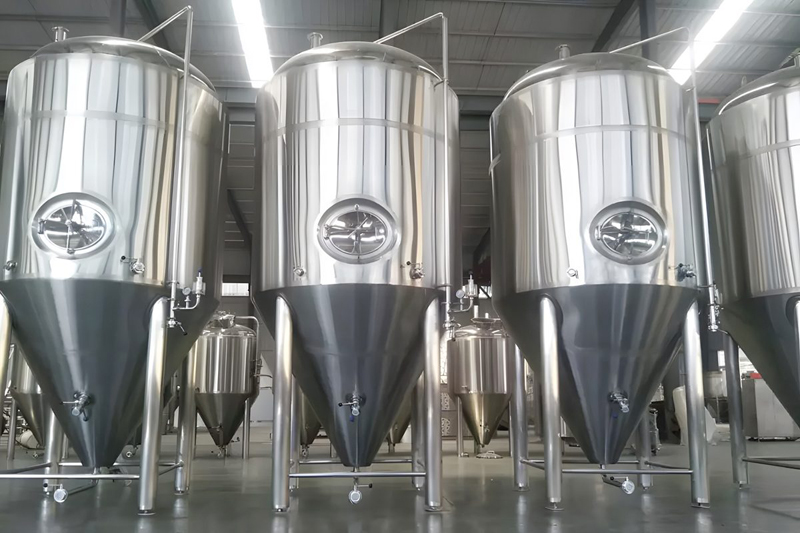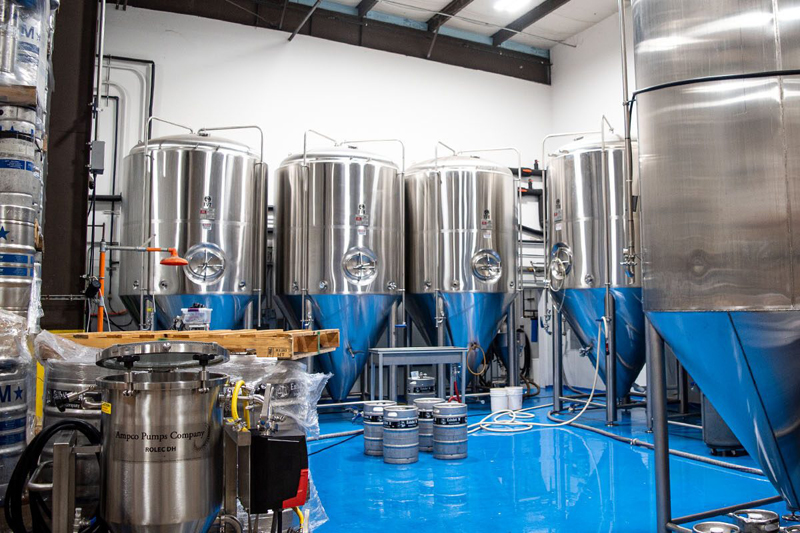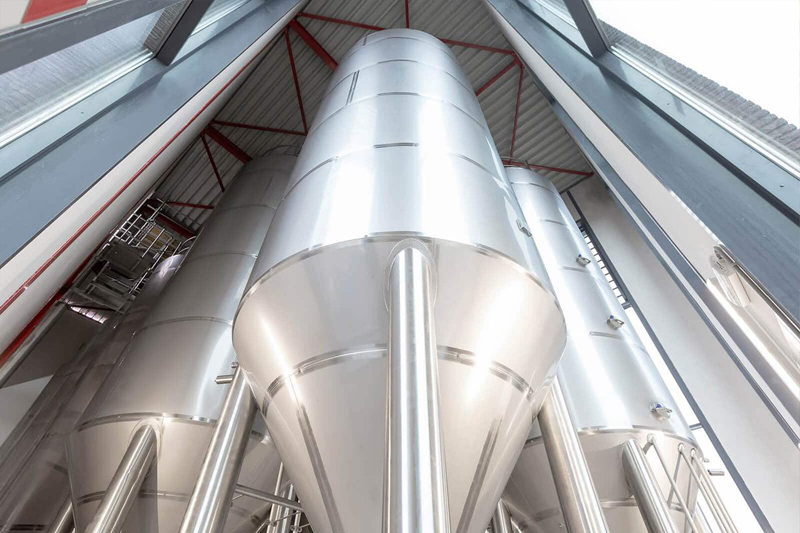Compliance with Industry Standards of Beer Fermenter
When selecting fermentation tanks for your brewery, ensuring that the equipment complies with industry standards is crucial for safety, quality control, and operational efficiency. Industry standards provide guidelines that help breweries maintain consistency in production, meet regulatory requirements, and avoid potential hazards associated with tank failure or contamination. Compliance with these standards also helps streamline processes, ensuring that the brewery operates efficiently while producing high-quality beer.
ASME Certification
The American Society of Mechanical Engineers (ASME) sets widely recognized standards for pressure vessels, including fermentation tanks that are used in pressurized environments. Fermentation tanks that meet ASME standards have undergone rigorous testing and certification processes to ensure they can safely handle the pressure generated during fermentation, particularly in pressurized systems like lagering or carbonation.
>Pressure Vessel Compliance: Tanks rated for pressurized fermentation must be certified by ASME or an equivalent organization to ensure they can withstand the required pressure levels without compromising safety.
>Durability and Reliability: ASME certification guarantees that the tanks have been constructed to withstand repeated pressure changes, offering long-term reliability and minimizing the risk of structural failure or accidents.
FDA and Food Safety Compliance
In breweries, fermentation tanks must meet food safety regulations set by organizations such as the U.S. Food and Drug Administration (FDA) to ensure that the equipment does not compromise the quality or safety of the beer. This includes ensuring that materials used in tank construction are safe for contact with food and beverages and that cleaning and sanitization processes meet hygiene standards.
>Food-Grade Materials: Tanks should be made from food-safe materials, such as stainless steel, which is resistant to corrosion and easy to clean. The use of non-reactive materials helps prevent contamination and maintains the integrity of the beer throughout the fermentation process.
>Hygiene Standards: Tanks must be designed for ease of cleaning and sanitization, with features like Clean-In-Place (CIP) systems and smooth, non-porous surfaces that prevent the buildup of bacteria or residue.
European Brewery Standards
For breweries operating in Europe or exporting beer internationally, compliance with European standards, such as those set by the European Union or specific countries, is essential. The CE (Conformité Européene) marking is one such standard that certifies equipment meets EU safety, health, and environmental protection requirements.
>CE Marking: Tanks used in European breweries must carry the CE marking, ensuring that they meet the safety and operational standards required in the EU market.
>ISO Standards: Compliance with ISO (International Organization for Standardization) standards for manufacturing, such as ISO 9001, helps ensure that tanks are produced consistently and reliably, with a focus on quality management throughout the production process.
Occupational Safety Standards
Fermentation tanks must also meet occupational safety regulations to protect brewery workers from potential hazards. This includes compliance with guidelines set by organizations such as the Occupational Safety and Health Administration (OSHA) in the U.S. or its equivalents in other countries.
>Worker Safety: Tanks should be equipped with safety features such as pressure relief valves, emergency stop systems, and proper insulation to protect workers from heat or pressure-related accidents.
>Safe Access Points: Compliance with occupational safety standards also ensures that tanks have safe and accessible manways, ladders, or platforms, enabling workers to clean and maintain the tanks safely without risking injury.
Environmental Standards
Environmental standards also play a role in the design and operation of fermentation tanks. Many breweries aim to reduce their environmental impact by using energy-efficient equipment and following regulations related to waste management and emissions.
>Energy Efficiency: Tanks designed to minimize energy use, such as those with efficient insulation or optimized cooling systems, can help breweries reduce their carbon footprint while complying with environmental standards.
>Waste Management: Compliance with local environmental laws may require breweries to manage waste products, such as yeast and wastewater, responsibly. Fermentation tanks should be designed to facilitate easy cleaning and disposal of byproducts, ensuring compliance with environmental regulations.
Third-Party Audits and Certifications
Many breweries undergo third-party audits or seek additional certifications to verify compliance with industry standards. These certifications, such as Safe Quality Food (SQF) certification or Hazard Analysis and Critical Control Points (HACCP) certification, demonstrate a brewery’s commitment to safety, quality, and sustainability.
>Third-Party Audits: Regular inspections and audits by accredited organizations ensure that the fermentation tanks and brewing processes meet the highest standards of safety and quality.
>HACCP and Food Safety: Implementing a HACCP system ensures that fermentation tanks and the entire brewing process are designed and managed to prevent contamination, maintain food safety, and ensure consistent product quality.
Compliance with industry standards is an essential factor to consider when selecting fermentation tanks. Meeting these standards ensures that your tanks are safe, durable, and built to perform efficiently, helping your brewery maintain high levels of production quality while adhering to food safety and environmental regulations.
Get Turnkey Brewery Solutions
For breweries looking to streamline their operations, opting for turnkey brewery solutions is a highly effective approach. Turnkey Solutions provides a comprehensive package that includes everything needed to get your fermentation tanks and brewing systems up and running. From consultation and design to installation and commissioning, Alston brew offers a full-service solution that takes the hassle out of setting up or expanding your brewery. These solutions ensure that every component, from the fermentation tanks to cooling systems and control panels, is compatible and optimized for your specific brewing requirements.
By choosing turnkey brewery solutions you benefit from expert guidance throughout the process, saving time and minimizing potential setup errors. This approach not only accelerates production timelines but also reduces operational risks by ensuring that the equipment is installed correctly and performs at peak efficiency. With ongoing support and maintenance, you can focus on brewing high-quality beer while knowing that your equipment is in good hands.
 Jinan Alston Equipment Co.,Ltd.
Jinan Alston Equipment Co.,Ltd.


